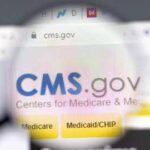CMS is even considering payment for prolonged services (99358 and 99359) before or after direct patient care. Rheumatologists may now be paid for extra time spent caring for individual patient needs beyond the office visit.
“Introduction of these codes is reasonable and shouldn’t be a problem for those rheumatologists who work with coordinated care teams and have the technology infrastructure and resources to manage patients with multiple conditions,” says Ms. Zielinski. She further notes that CMS is continuing to take steps to move from a more traditional healthcare delivery model to a more coordinated and integrated healthcare delivery system.
At this point, she believes the proposed rules don’t necessarily cut overall reimbursements for rheumatologists. Although the conversion factor—a scaling factor that converts the geographically adjusted number of relative value units (RVUs) for each service in the Medicare physician payment schedule into a dollar payment amount—is expected to drop by almost three cents, from $35.8043 to nearly $35.7751, she explains that CMS is projecting a 2% overall impact in the relative values—work and practice expenses—for rheumatologists. This could result in possible increases for rheumatologists, depending on the services provided.
Ms. Zielinski adds that CMS is also reviewing misvalued 0-day global services typically billed with an evaluation and management code with Modifier 25. This includes injections or aspirations (20600, 20605, 20610, 20550) or trigger-point injections (20552 and 20553). Although the physician fee schedule is far from ideal, Ms. Zielinski points out that, overall, it should still be viewed as positive.
Rewarding Performance
Besides slight changes in the physician fee schedule next year, all physicians will have opportunities to receive additional payment incentives from Medicare over the next several years.
Starting in January 2017, MACRA (Medicare Access and CHIP Reauthorization Act) reporting begins, although there is a possibility it will be postponed. Depending on their performance, rheumatologists may receive an increase of up to 4% in Medicare payments in 2019 for improving quality care and reducing healthcare costs. However, if their performance is calculated to be poor, physicians could face up to 4% in penalties. Medicare has allocated additional dollars for high performers.
“One of the levers rheumatologists can use to increase CMS reimbursements is working with their hospitals, an ACO or clinically integrated network, and providers in their community to integrate systems and take care of patient populations,” Ms. Zieliniski says. “That’s really the ticket.”
Carol Patton is a freelance writer based in Las Vegas.

